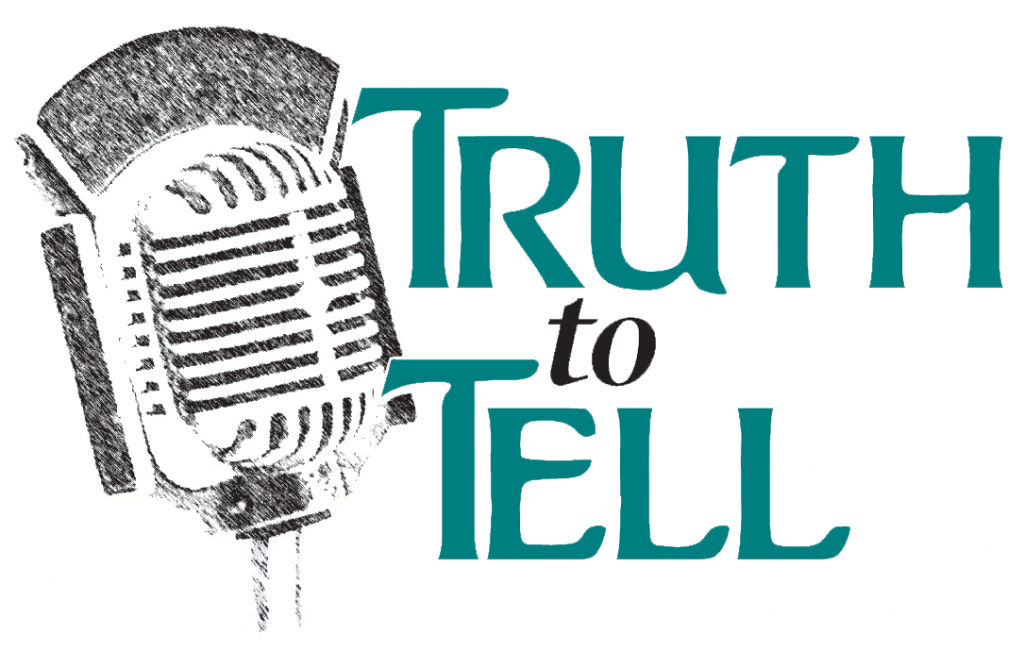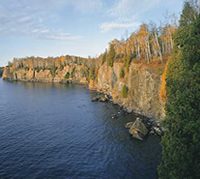Truth To Tell (2011-04-25)
Remember – call and join the conversation – 612-341-0980 – or Tweet us at TTTAndyDriscoll or post on our Facebook pages
Watch us in Studio 5! TruthToTell is now seen live on Livestream and later on Blip.tv.
~~~~~~~~~~~~~~~~~~~~~~~~~~~~~~~
What is more important? Jobs? Or the long-term integrity of our air and water?
What more are we willing to sacrifice in terms of what we’re able to eat, drink and breathe in order to provide some – perhaps a lot – of short-term construction work – along with far fewer full time, permanent jobs?
These are but a few questions that require some deep and introspective thinking and evaluating by millions of people who surely want clean air and water and unadulterated food, but who have, through no fault of their own, found themselves unemployed, limited in their training and education to the work they did before and eager to earn a living for themselves and their families.
That’s what makes projects like the PolyMet Copper-Nickel Mine project well north of the Twin Cities such a seductive venture. The mine would be dug smack in the middle of the Superior National Forest, in what is called the Duluth Complex – a relatively untapped lode of these metals – the Fond du Lac Indian Reservation.
All local and statewide politicians, several labor groups and the Chambers of Commerce are one in arguing this issue: create the jobs – and forget the environmental damage their work may cause in both the long and short term. They claim this all-new, non-ferrous mining operation will produce the important copper and nickel used in a variety of products we use every day – with an interesting emphasis on renewable, rechargeable and critical-use tools – like batteries, hybrid vehicles, and pollution-reducing catalytic converters. Clever marketing.
Some local state representatives, senators, mostly Democrats last year, and joining them this year – Republican majorities – and even Amy Klobuchar and Jim Oberstar, endorse the project and angrily dismiss worried environmental groups and the Fond du Lac tribe’s arguments and even the Environmental Protection Agency’s lowest environmental rating as just so much (as if job-killing were an active agenda for clean water and food). The company isn’t much talking, so we can only consult their website for what is little more than a marketing pitch.
At stake in this project are issues confronting all Minnesotans, not just those in the immediate vicinity of the mine itself – but its direct impact on the Fond du Lac Tribe of Lake Superior Chippewa – its economy and the safety of the waters thereabouts. These are wild-rice waters around there. We have other mines, yes, but this is the first rock containing sulfur, which, when exposed to air, water and bacteria, sulfur forms sulfuric acid. Not only can it drastically change the pH of a water system – from neutral or caustic to acidic – it tends to liberate heavy metals like mercury out of the rock and into the water.
So. What to do about this conundrum between one economy and another, between the millions of years of clean water and the likely changes that could probably kill everything living in it and the mining jobs so many people in that area believe are desperately needed – and will do anything, including leaving a questionable legacy of ecological disaster for the next generations in order to sustain their families and communities? What about the wild-rice growing and harvesting local Natives rely on for a major part of their living?
TTT’s ANDY DRISCOLL and MICHELLE ALIMORADI talk with those who are feeling slightly less powerful than the companies, politicians and state agencies backing the mine, including Winona LaDuke, who has been fighting the adulteration of wild rice paddies and the hybridization and commercial cultivation of wild rice for decades.
WINONA LADUKE – White Earth Indian Reservation and Founder, White Earth Land Recovery Project
PAULA MACCABEE – Attorney, Water Legacy
BRUCE JOHNSON – Retired MPCA Staff and Northern Minnesota constituent
BOB TAMMEN – Retired Mine Worker
FMR SEN. JIM CARLSON – Author, SF 2349 (2010), providing for financial assurance for nonferrous metallic mineral mining
Thanks to Water Legacy activist, Diadra Decker, for advising and assisting this production.



